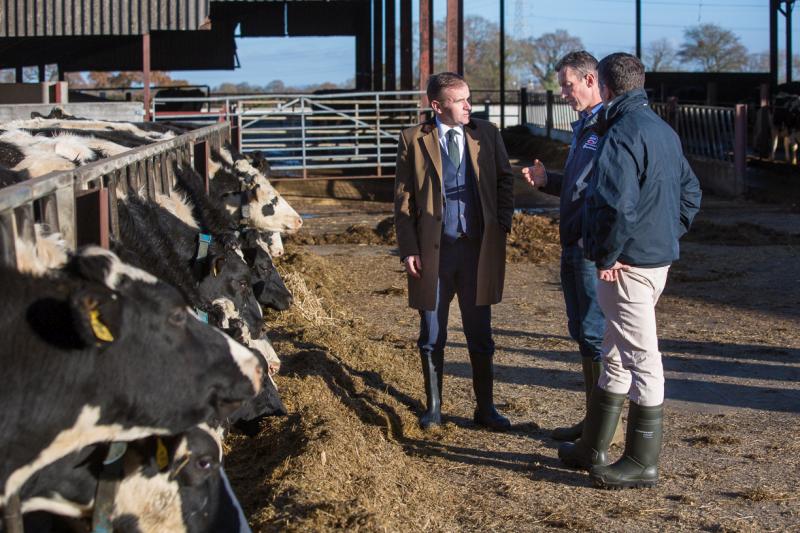
The role of biosecurity measures in reducing the risk of a TB breakdown has been recognised in new Government rules.
It will see participants in Cattle Health Certification Standards (CHeCS) TB herd accreditation programmes exempt from more frequent testing.
The new Government rules, likely to be introduced in 2019 following a consultation last year, stipulate that herds in the High Risk Area of England (HRA) will be tested six-monthly rather than annually.
However, exceptions will be made for lower risk herds, which will remain on annual testing. ‘Lower risk herds’ includes those engaging in a CHeCS TB herd accreditation scheme with at least a year of clear tests since their last breakdown (scoring Level 1), with Defra stating that such keepers ‘should be rewarded for their explicit commitment to managing their TB risks’.
CHeCS, more commonly known for setting health scheme standards to test for and control or eradicate BVD, IBR, Leptospirosis, Johne’s Disease and Neospora, introduced herd accreditation for bovine TB in November 2016.
Two health schemes – Premium Cattle Health Scheme run by SAC and HiHealth Herdcare run by Biobest – currently provide this accreditation.
It requires the implementation of various biosecurity measures, overseen and signed off by the herd vet, as well as agreement from the farmer to access the herd’s official TB test data from Government.
Participating herds are awarded an annual score reflecting the number of years since the last breakdown, to a maximum of score of 10.
'Overwhelming case'
The move has been welcomed by CHeCS, which says there is an "overwhelming case" that improved biosecurity can reduce risk of a breakdown.
Specialist cattle vet Keith Cutler, partner in the Endell Veterinary Group and chair of the CHeCS technical committee, says while he and his colleagues see the devastating effect of TB on a regular basis, there are still "tangible actions" that will reduce risk.
“The fact that Government recognises that risk is lowered after just one year of participating in a CHeCS scheme shows how effective the CHeCS measures can be,” he says.
The rules governing TB testing in Wales changed last year to require post-movement testing for cattle entering the Low TB Area.
However, one of the exemptions to Post-Movement Testing is for cattle originating from a herd which is a member of a CHeCS TB accreditation scheme and classified as level 10.
Level 10 denotes 10 years since the last TB breakdown and the exemption to Post-Movement Testing recognises the low risk of cattle from CHeCS Level 10 herds spreading the disease.
